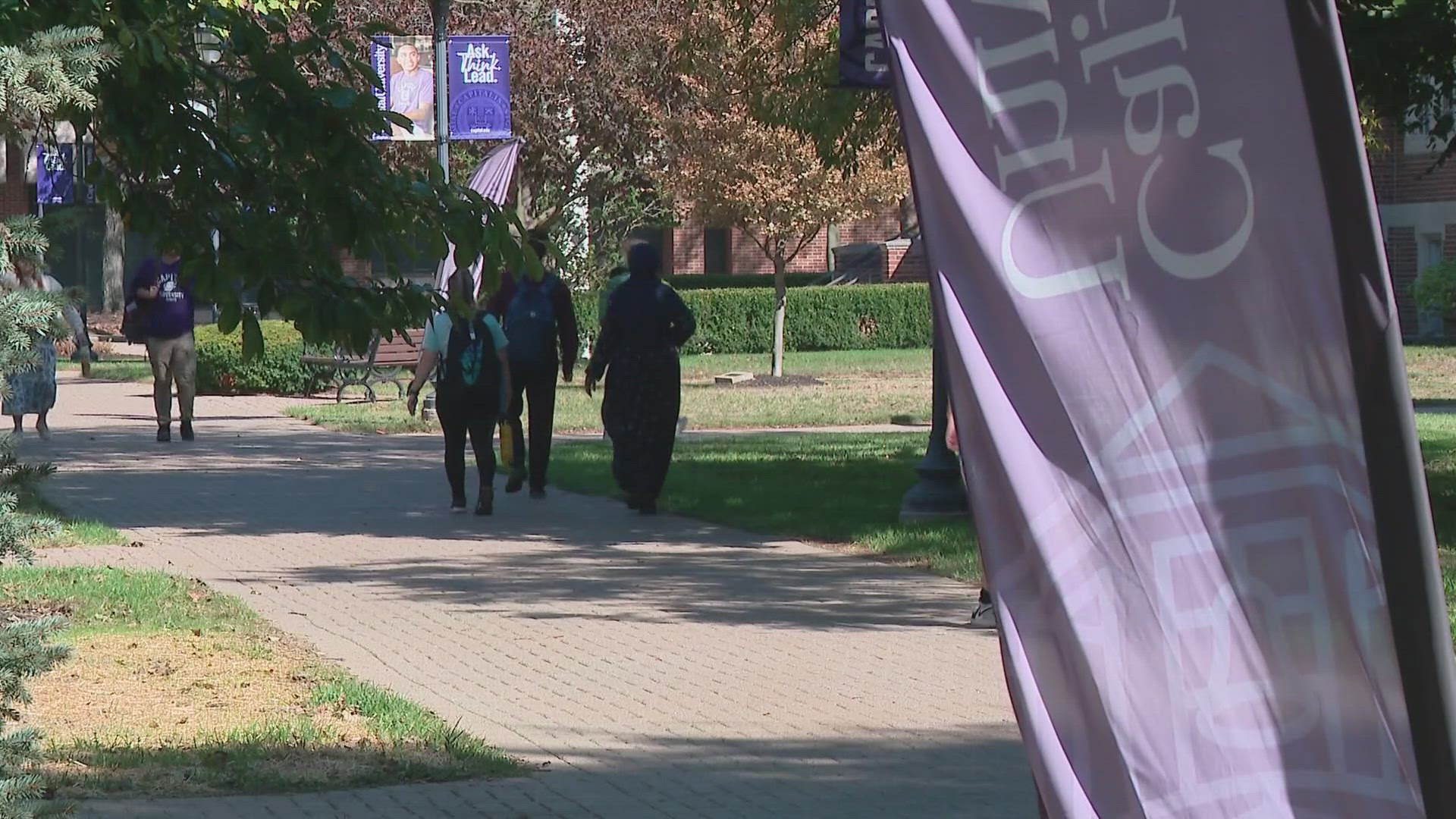COLUMBUS, Ohio — For 60 years, the ACT test was the bar by which colleges and universities used to help predict which students would most likely finish college and earn a degree.
Today, admission offices are more likely to not use those test scores and instead, focus on the student’s cumulative GPA.
“It was good to know that a test score wasn't going to define me,” said Liz Pollner from Columbus, who is a junior at Ohio Wesleyan University.
More students across the country, including Ohio, are choosing what is now known as “test optional” or “test blind” schools. For some students, they said it helped relieve the pressure that they didn't have to take the ACT or the SAT. Some parents like it too.
Ohio University, Capital University, Case Western Reserve University, Bowling Green State University and the University of Cincinnati are among the schools that say they will remain test-optional, meaning students can submit their test scores if they choose but it’s not a requirement.
The Ohio State University said it had not made a decision for the 2025-26 school year, but remains test optional for now.
Adam Smith is the head of enrollment for Ohio Wesleyan University.
“We'd rather see how a student has done over their four-year span in high school over than one or two days doing standardized tests not everyone is a great test taker,” he said.
Harry Feder is the executive director of the National Center for Fair Testing.
“These fill-in-the-bubble type tests really do not measure or assess what kids can actually know and do,” he says.
Capital University Interim Vice President of Enrollment Stephanie Sanders said a student’s GPA has proven to be a good predictor of student success.
“We have not found that the absence of test scores prevents us from enrolling in a successful class,” Sanders said.
Sanders said the ACT test can be a barrier to students of color or from lower incomes.
“We see a lot of students that come from underrepresented communities being negatively impacted by SAT and ACT scores simply because they may not have resources like internet access,” she said.
Rose Babington works for the ACT and is a former admission officer with Ohio State. She said Ohio is one of 23 states that offer free ACT testing to all high school students and argued the ACT guards against grade inflation, something colleges and universities have to decipher in order to select students who can demonstrate they handle the rigors of college classes.
“GPA has always been tricky how much it varies school to school district to district let alone state to state and we've seen that grow more problematic since the pandemic not less,” she said.
While Capital University said going test-optional has not increased enrollment or improved retention, the opposite happened at Ohio Wesleyan.
“We feel we have done well. Our enrollment is up, or retention is up our diversity is up we feel if it's not broke why fix it,” said Adams.
The University of Cincinnati says it’s also seen a difference since going test-optional.
“Since that time, not only has UC grown. We grew from 46,000 to 53,000 students during that time period but we have also seen applications increase 10-20% year over year. The move to test-optional has not had an impact on our retention rates though COVID did have an impact during the same time period. The move to test-optional has been extremely successful for UC and our goal of serving the Ohio and Cincinnati community,” said Katie Pence, director of media relations for the University of Cincinnati.
Some colleges have reverted to the use of ACT test scores. Some Ivy League schools continue to remain test-optional, including Columbia University, Princeton University and the University of Pennsylvania for fall 2025 applicants and some programs at Cornell are test-free. You can see a complete list here

